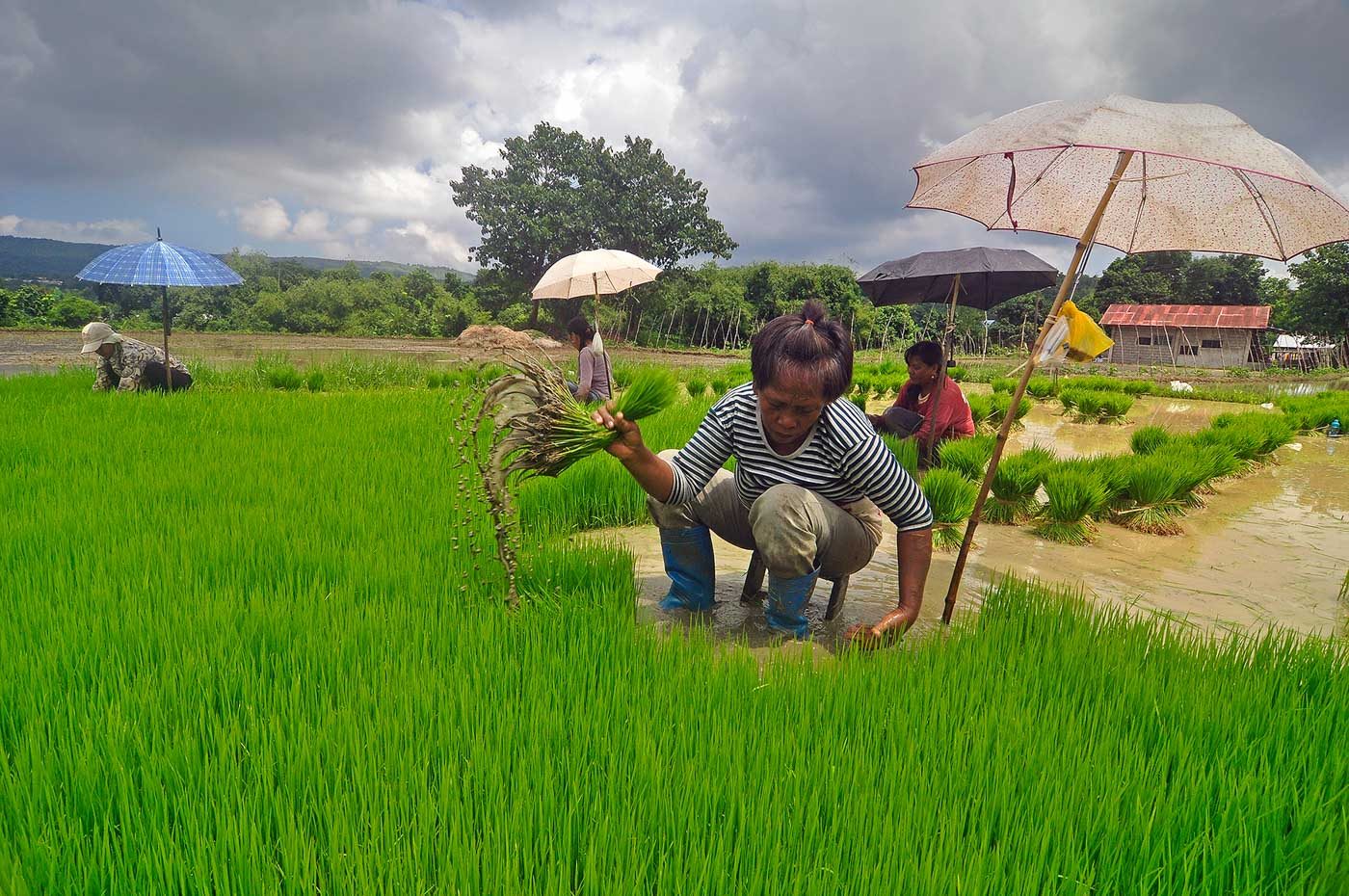SUMMARY
This is AI generated summarization, which may have errors. For context, always refer to the full article.

MANILA, Philippines (UPDATED) – In a bid to improve the agriculture and fisheries sector, the Philippine government passed a law institutionalizing a Farmers and Fisherfolk Enterprise Development Program.
President Rodrigo Duterte signed Republic Act No. 11321 or the Sagip Saka Act on April 17. The law was made available to the public on Monday, May 27.
Senator Francis Pangilinan, the law’s principal author and principal sponsor in the Senate, welcomed the signing as a “victory for farmers and fishermen.”
The program is intended to help farmers and fisherfolk make a decent living out of agriculture and fisheries.
To do this, the program will provide assistance like agricultural extension services; skills development; provision of production inputs, equipment, and facilities; and infrastructure for production and post-production activities.
It should also help improve farmers’ and fisherfolk’s access to credit grants, crop insurance, and new technologies. Another form of assistance is helping their trade grow by improving their access to markets. (READ: Farmers’ preferences to be considered in agriculture procurement)
The program covers the following:
- Agricultural and fisheries production, including fisheries and agri-based products and farm inputs
- Acquisition of work animals, farm and fishery equipment and machinery
- Acquisition of seeds, fertilizer, poultry, livestock, feeds, and other similar items
- Procurement of agricultural and fisheries products for storage, trading, processing, and distribution
- Construction, acquisition, and repair of facilities for production, processing, storage, transportation, communication, marketing, and such other facilities in support of agriculture and fisheries
- Working capital for agriculture and fisheries graduates to enable them to engage in agriculture and fisheries
- Agribusiness activities which support soil and water conservation and ecology enhancing activities
- Working capital for long gestating projects
- Credit guarantees on uncollateralized loans to farmers and fisherfolk
Gov’t to buy directly from farmers, fishermen
As a further boon to farmers and fisherfolk, the law orders all government entities to directly purchase agricultural and fisheries products from local farmer and fisherfolk enterprises.
“For example, the government feeding programs under the nutrition and health programs should buy rice, vegetables, fruits, chickens, and other agricultural products directly from farmers and fisherfolk. We are taking out the middlemen who earn the most out of the toil of farmers and fishermen,” said Pangilinan in Filipino.
The measure exempts both national government agencies and local governments from the Procurement Law when it purchases agricultural products directly from accredited farmers coops and organizations.
It also imposes a slew of tax incentives and exemptions to encourage assistance for farmers and fisherfolk.
These are the following:
- Gifts and donations of real and personal properties shall be exempt from donor’s tax
- Local government units will exempt structures, buildings, and warehouses used to store farm inputs and outputs from real property tax (as long as assessed value of property is P3 million or less)
- The Land Bank of the Philippines will provide preferential rates and special window to accredited farmer and fisherfolk enterprises
- Exemptions from income tax may be provided for income arising from the operations of the enterprise as long as the farmer and fisherfolk cooperatives and enterprises are registered as barangay micro-business enterprises based on the Barangay Micro-Business Enterprises Act of 2002
The Department of Agriculture is the agency in charge of leading the implementation of this law. – Rappler.com
Add a comment
How does this make you feel?
There are no comments yet. Add your comment to start the conversation.